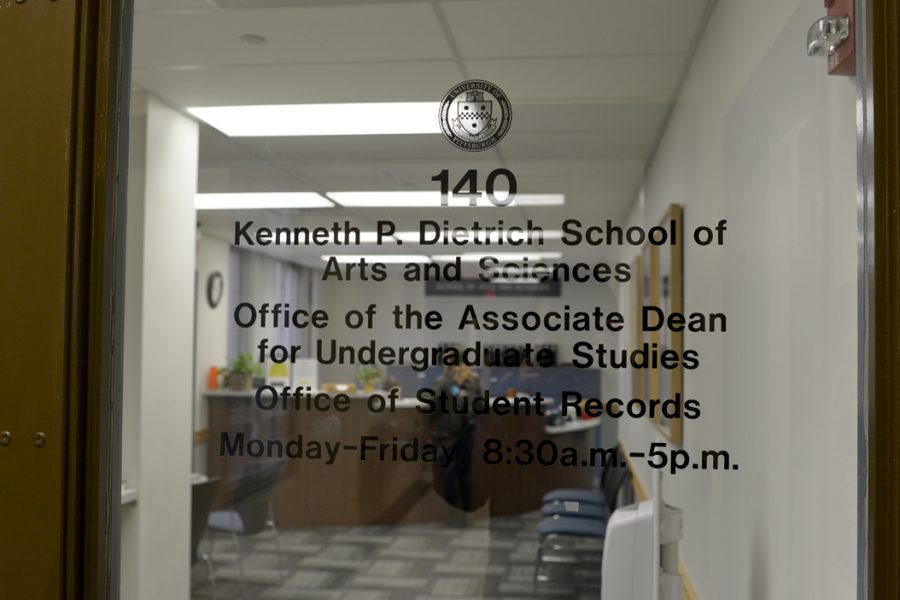For the first time in 35 years, general education requirements are changing in the Kenneth P. Dietrich School of Arts and Sciences.
The Undergraduate Council, composed of 12 faculty members and five undergraduate students, recently announced it approved changes for the general education requirements — also known as GERs — during a three-hour-long open meeting in November.
Students entering the School of Arts and Sciences in the fall of 2018 will now be required to take at least one designated diversity course as part of the new GER changes. Current students will have the option to switch to the new GER track or continue on the current path.
The Undergraduate Council also approved amendments to the existing foreign culture and second course in literature, arts or creative expression GERs.
According to John Twyning, associate dean for undergraduate studies and Undergraduate Council chair, the council voted to change and amend the current requirements to better prepare students for future employment opportunities after graduation.
“We changed the general education requirements to make them more legible and mostly to provide students with curriculum that prepares them for their academic success [at] Pitt,” he said in an email.
Arts and Sciences students were previously required to take three foreign culture or international courses with at least one course in a non-Western culture. After a year and a half of reviewing GERs, the council decided that since “non-Western” is difficult to define — and puts emphasis on the Western world itself — students must take three global awareness and cultural understanding courses: one in global issues, one in a specific geographic region outside the United States and one in cross-cultural awareness.
Before the changes to GERs were approved, several faculty members within the School expressed their disagreements with the proposed changes. The amendments would have removed the exemption that allows students who took at least three years of a foreign language in high school to bypass foreign language courses if. Faculty in other departments, particularly the science departments, worried that the changes would funnel resources away from their programs and into the foreign language programs as more students took classes in German, Italian or other foreign tongues.
The school is usually wary about letting a class fill more than one requirement, but the diversity courses may fulfill other GERs and be within students’ majors. Twyning said this was done to keep students on track to graduate.
Sophie Shah, a first-year psychology major, said that while she’s already completed a few courses as part of her GERs, she would consider switching to the new track at her next advising appointment.
“I think this is a really good idea because it’s good to change a system that’s been in place for decades and decades,” she said. “And because they are being flexible about what GERs they can apply for, it’s like killing two birds with one stone.”
Twyning said the council also clarified existing GERs. He said the creative expression requirement will include existing courses, such as studio arts and theatre courses, and newer classes, such as game and app development and programming.
In addition, philosophy courses will focus more on the importance of ethics, and history courses will be altered to focus on historical investigation — analyzing history — instead of historical change — simply learning about a historical period.
Currently, the Dietrich School requires students to complete two courses — a year’s worth — in a second language with at least a C-minus. Students who complete three years of a high school language class with a B or above are exempt from this requirement.
The proposal, put forth by Randall Halle of the German department and Lina Insana of the French and Italian languages and literatures department, stated that students would be required to demonstrate foreign language proficiency by scoring a 4 or better on an Advanced Placement language test, like what the University does for any other GER.
David J. Birnbaum, chair of the department of Slavic languages and literature, said he lobbied to change the requirements for demonstrating secondary-language proficiency, but it did not go through.
“High school language education is dramatically different [from] school to school and class to class. There’s no guarantee it’s the same quality across the board,” he said in an email.
However, the proposal was sent back to the Dietrich School Undergraduate Council after a 67-62 faculty member vote on the matter at the open meeting in November.
The language faculty is meeting with the Council in the coming weeks to further discuss the issue. Before that meeting, Twyning says the Council will have to determine how the change would affect students who must take additional required courses since it impacts their schedule.
Despite the potential language requirement change, Twyning says he hasn’t seen any backlash about the new general education requirements. If someone does have a problem with them, they can send him a letter with their concerns.
“Focusing on the things that are more relevant to today’s world — it’s definitely better to have things that relate more to the field and career I want to pursue in the future,” Shah said.



